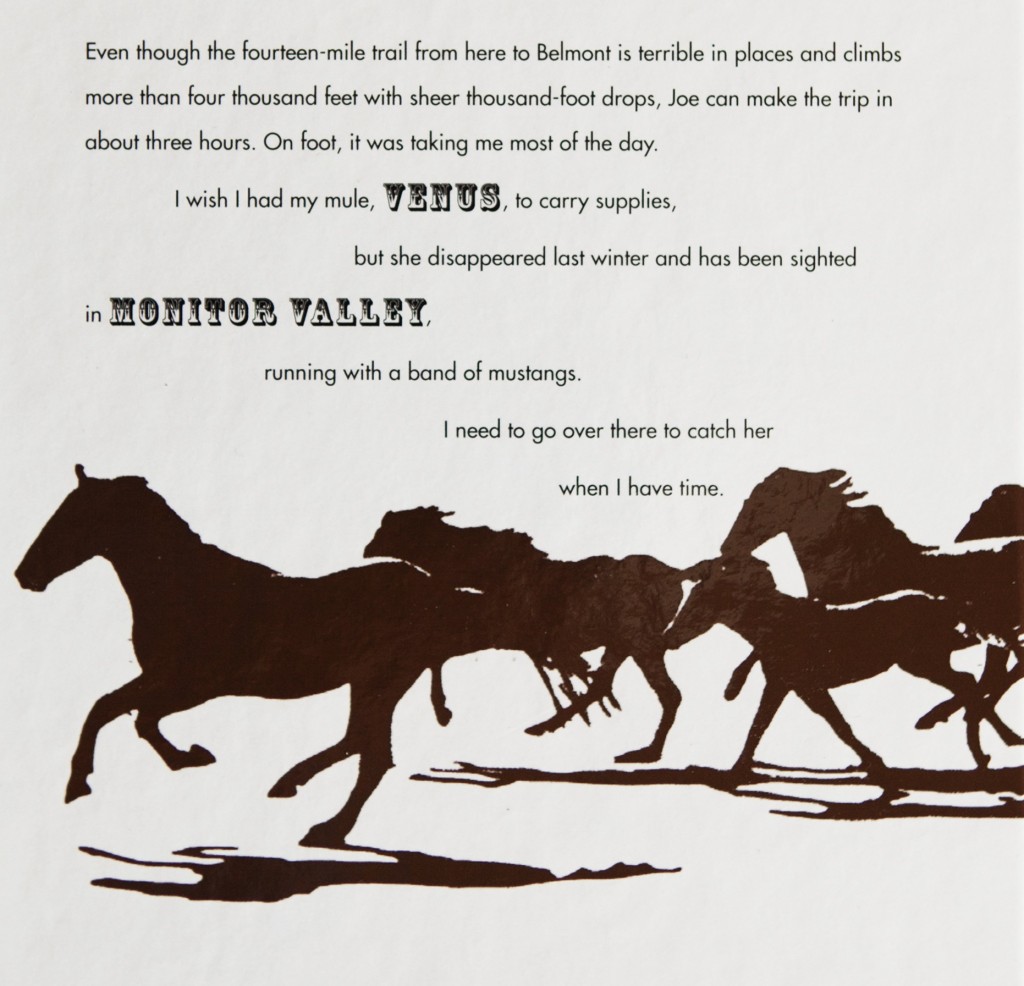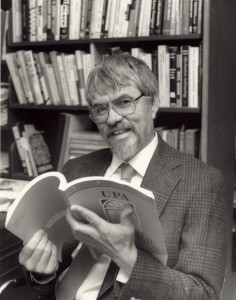$25.00
Death After Life: Tales of Nevada is a series of 13 short fiction tales by Nevada scholar-resident-writer-academic William A. Douglass. The illustrations were created specifically for each story from the landscape of the Smoke Creek Desert, Gold Hill, Reno, Gerlach, Pyramid Lake, Lake Tahoe, and beyond. These include images of trophy display walls and trapper tools.
Description
Death After Life: Tales of Nevada, by William A. Douglass
A man of untold yet startling talents is suggested in the stories by Bill Douglass in a new fictional work, Death After Life. This trim collection is all about Nevada where Bill was born and raised, showing remarkable adaptability in someone whose Silver State citizenship began at birth. Bill’s father was an early resident of Tonopah, and his grandparents saw every wart and wattle of the Comstock during its 1860s prime. A University of Chicago-trained social anthropologist in his academic training, Bill co-founded the Center for Basque Studies at the University of Nevada, Reno, and in decades of work has written about an unending series of themes: mining, ranching, casinos, immigrants (Basque and Italian, but others too), theory. If Bill is a supremely-honored professor in the university realm, it’s important, in reading the stories in Death after Life, to understand that (like many Nevadans) Bill had a lively youth: the chapters are a fictional account, but borrow from first-hand experiences of trapping, sowing wild oats, hunting, fishing, collecting reptiles for paying customers, and the tales touch on long years of family responsibility, managing casinos. Now retired from teaching and having set aside the custody of gaming establishments—though still writing and a ranch-owner—Bill in this collection is a storyteller first and foremost, a role that allows him to reflect on his past and that of Nevada, a place so young (in terms of euroamerican settlement) and so changeable (in terms of flash-in-the-pan boom and bust cycles) that it has the fewest native-born residents in the United States. That makes Bill Douglass the voice of well-weathered experience, and these stories are born of that slow ferment and evolved wisdom.

Cropped back-cover Death After Life Tales of Nevada by William Douglass Cover published by Black Rock Institute

William Douglass
William Anthony Douglass (“Bill”) is the grandson of famed Tonopah legend Billy Douglass. His father Jack was a pioneer in the Nevada gaming business, operating a slot route in central Nevada mining communities in the 1930s and ultimately becoming one of the original partners in Reno’s Club Cal Neva. William Douglass is a social anthropologist by training (PhD University of Chicago 1967) and a founder, along with Robert Laxalt, of the Center for Basque Studies of the University of Nevada System. He directed it for 33 years before retiring in 2000 to pursue his real career as a fly fishing bum around the globe.

Bill Douglass presenting his newest book “Death After Life” to Iñigo Urkullu, president of the Basque Country. Photo courtesy of Pello Elzaburu.
Douglass has authored about two dozen books and 200 articles, mostly of the academic variety on anthropological and historical topics. His many publications on the Basques earned him the sobriquet “Mr. Basque” (the title of a biography of his life and work) as well as a number of international honors and awards. 2015 marked the 40th anniversary of the publication of the seminal work that he co-authored (with Jon Bilbao) entitled Amerikanuak: Basques in the New World. That book was instrumental in the creation of the sub-field of immigration studies in the many Basque emigrant diasporas around the world. Throughout 2015 commemorative events of publication of Amerikanuak were organized at many European, North and South American universities, as well as in Iceland.
Douglass continues to write and publish, including three books in the last year. Los Vascos en Cuba (2015) presents the results of a three-day academic conference that he organized in Havana in January of 2015, Basque Explorers in the Pacific Ocean relates Basque participation in Spain’s many voyages of discovery in the world’s largest body of water over two and a half centuries—including the many key Basque figures in the exploration of North America’s Pacific coast from Baja to Alaska. And then there is the book of short stories Death After Life. Tales of Nevada—which has already appeared in Spanish and Basque translations.
Douglass is available for lectures and book signings, and will read from his book of short stories, discuss its genesis, and answer questions. While the stories have fictional touches, they are quite autobiographical—detailing three generations of the Douglass family. Several are set in Tonopah and its surroundings.

Renaming Basque Libraries, William A. Douglass Center for Basque Studies
Several of Douglass’s other works —include Amerikanuak, Basque Explorers of the Pacific, Mr. Basque, Tap Dancing on Ice. Life and Times of a Nevada Gaming Pioneer (Bill’s oral history of his father Jack’s life) and Letters from the Nevada Frontier. The Correspondence of Tasker L. Oddie (1898-1902). All of these works have strong western North America and/or central Nevada relevance. Mr. Basque, Tap Dancing on Ice, and Letters from the Nevada Frontier are all significant contributions to Tonopah-Goldfield history.
William Douglass, co-founder and first director of the Center for Basque Studies of the University of Nevada System, has been the object of considerable local, national and international attention from 2015 to the present. In January of 2015 he organized and moderated a three-day conference in Havana on the subject of the Basques in Cuba. It was the first event in a series of others organized at universities in Latin America, North America, Europe and Iceland to commemorate the fortieth anniversary of the publication of Amerikanuak. Basques in the New World (1975) that Douglass co-published with Jon Bilbao. The work was foundational, seminal and canonical in the creation of the sub-discipline of Basque diasporic studies around the world. In October Douglass gave the keynote address at the conclusion of the Congress of Basque Collectivities in the World (held every five years in the Basque Country). In November of 2015 UNR’s president Marc Johnson and Nevada governor Brian Sandoval presided over a ceremony in which the premises of the Center for Basque Studies in the Mathewson-IGT Knowledge Center were named for Douglass and its Basque library for Jon Bilbao. In September of 2016 there will be a two-day conference at the University of Massachusetts on Douglass’s work and he will deliver the inaugural lecture of the year’s cycle of addresses on the topic of Immigration. The Dechepare Institute of Basque Studies will inaugurate an endowed chair in the anthropology department of U Mass in Douglass’s name.













